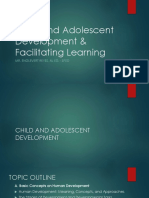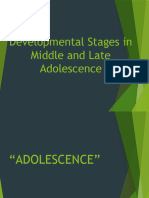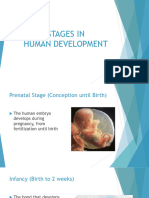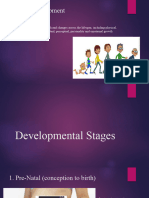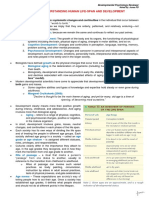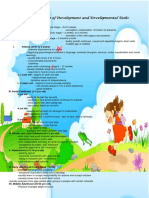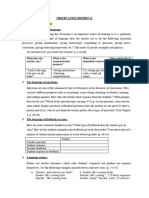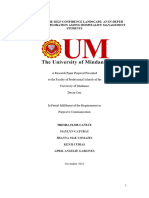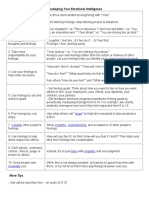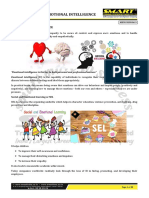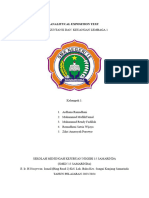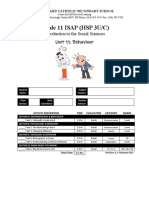0% found this document useful (0 votes)
45 views24 pagesNature and Concept of Human Behavior
Human development progresses through distinct stages from infancy to old age. Each stage is characterized by typical physical, cognitive, and behavioral changes. Mastering developmental tasks appropriate for one's age aids this progression by enabling people to adapt to their environment and achieve self-actualization. However, handicaps like poor health or lack of opportunities can impede mastery of these tasks.
Uploaded by
Jent Denise DisepedaCopyright
© © All Rights Reserved
We take content rights seriously. If you suspect this is your content, claim it here.
Available Formats
Download as PDF, TXT or read online on Scribd
0% found this document useful (0 votes)
45 views24 pagesNature and Concept of Human Behavior
Human development progresses through distinct stages from infancy to old age. Each stage is characterized by typical physical, cognitive, and behavioral changes. Mastering developmental tasks appropriate for one's age aids this progression by enabling people to adapt to their environment and achieve self-actualization. However, handicaps like poor health or lack of opportunities can impede mastery of these tasks.
Uploaded by
Jent Denise DisepedaCopyright
© © All Rights Reserved
We take content rights seriously. If you suspect this is your content, claim it here.
Available Formats
Download as PDF, TXT or read online on Scribd
/ 24







